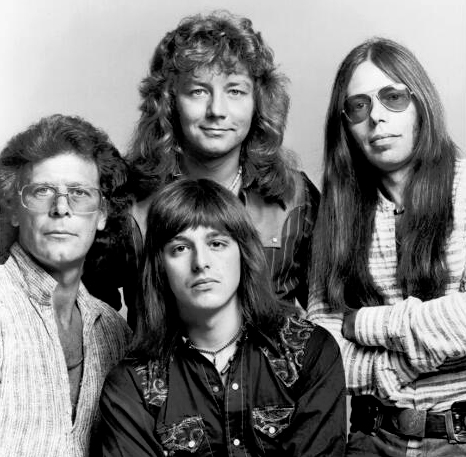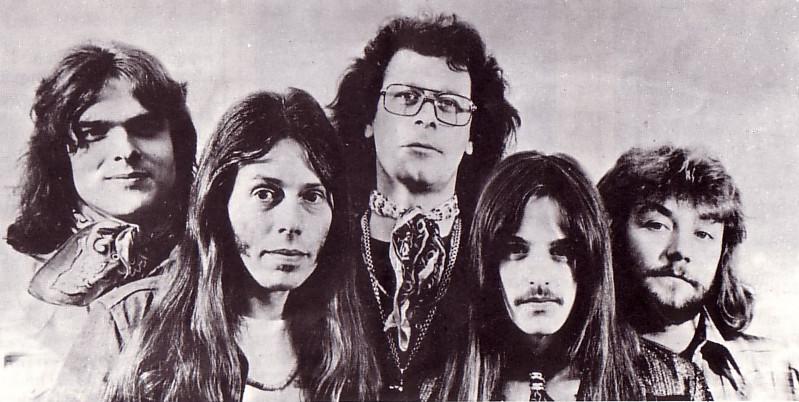Colin’s interest in music was ignited at a young age and continued to be the major influence in his life. At the age of 29 he became a professional musician after holding down a regular job as a Metallurgist for a number of years.
Growing up in Stafford, England in the 1950’s, he began playing the harmonica before switching to the clarinet. He then expanded his musical repertoire by teaching himself the saxophone and guitar. His love of music permeated his whole life. He played, practiced and sang every day until his untimely death in 2008. Although his musical interests and influences changed over the years, as can be seen through Climax Blues Band’s 19 albums, he remained loyal to his greatest musical love – the Blues. By the time of Colin’s death in 2008 he had a 40-year history of making music and playing to audiences around the world.
In the early 1960’s, while in his mid-twenties and working full-time, Colin formed Colin Cooper’s Climax Jazz Band. The group played regular gigs in the local area and undertook a tour of the South of France, an experience that influenced him greatly. During that early period of his career, Cooper also worked with the 60’s mod band The Hipster Image. This band was produced by Alan Price and had hits with, ‘Can’t let her go’ and ‘Make her mine’ (the latter was successfully used in a recent Levi advert in Asia).
Alongside this, Colin then began doing blues sessions as well as jazz sessions at a local pub. This shift in focus became the impetus for the Climax Chicago Blues Band, which over the years became Climax Blues Band (the new band grew directly from those early days and even retained the logo Colin designed back in the early 60’s). The band became one of the leading lights of the 1960’s Blues Boom.
Colin loved to play live and, as the success of the band grew, he moved on from playing local pubs and clubs. By the mid 70’s Climax Blues Band was drawing huge crowds in the States while continuing to have a loyal following in the UK and in Europe. Alongside the live success the band found increasing commercial success with their studio work. By 1979 they had 11 albums to their name.
During the 70’s the band was increasingly influenced by the music of the time and Colin was influential in shifting the band’s emphasis into a slicker style, clearly influenced by contemporary soul and funk. This shift led to Climax Blues Band performing alongside bands such as Sly and the Family Stone and War.
The releases Stamp album and Gold Plated brought greater commercial success for the group. Cooper’s distinctive vocals were crucial to the mainstream success of Couldn’t Get it Right (1978), a big hit on both sides of the Atlantic. The record was later successfully covered by The Fun Lovin’ Criminal’s in 1999. Following the achievement of that single the band flirted with producing new music that intended to court increasing commercial recognition, however Colin’s love of the blues remained.
After the departure of some band members in early 1980’s, Colin once again returned to the blues in his everyday work. He refocused the group and re-established them in the UK and across Europe. His continued enthusiasm for, and focus on, live performance led to a well-received concert album Blues from the Attic (1994) and in 2003 the band issued Big Blues (the Songs of Willie Dixon). He did however guest on the Steel Pulse album African Holocaust performing on two tracks of this legendary roots reggae band.
Throughout this period Colin continued to listen to and research the Blues, while also working alone and making solo recordings of the tracks that had influenced and inspired him musically. These ‘lost’ tapes were a personal project and a labour of love over a period of 14 years. Since his untimely death they have been collated and re mastered. This previously unreleased work demonstrates Colin’s unique vocal style, accomplished musicianship and deep knowledge of the music he loved.




